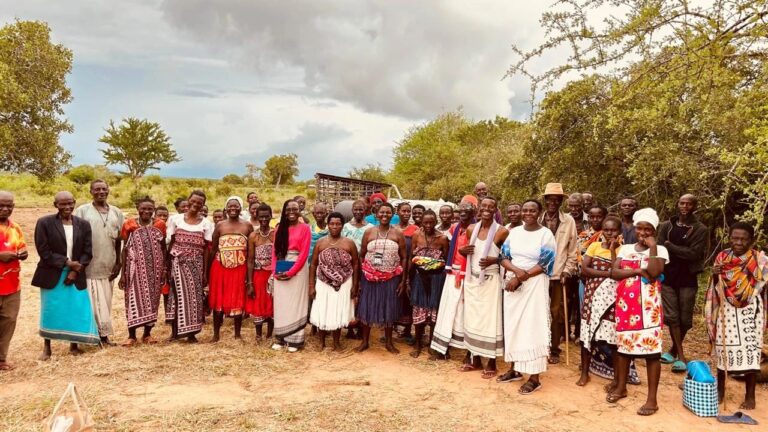Some streets of Ghana, once dominated by commuters and hawkers, are now home to an increasing number of beggars, many from Niger, Sudan, Mali, and Chad.
Their presence has sparked concerns over security, public health, and the welfare of children.
At the bustling Kwame Nkrumah Circle, where thousands pass daily, I met several foreign beggars whose survival depends solely on the kindness of strangers.

Among them was Aisha Baare, a mother of three from Niger. She moved quickly through the crowd, scanning faces for generosity. Gesturing towards her children, she said in broken English, “They are young. Give them money for food.”
Aisha came to Ghana with her husband to make a living through begging. “My husband took another route. We meet at Circle in the evening,” she said.
Life for the family is precarious. They sleep on the streets, wash in public facilities when possible, and often go without basic hygiene. They move between Circle, Kaneshie, La, and Kasoa in search of donations.
But times have changed. “When we first came, people gave more,” Aisha said, noting that the growing number of beggars has made it harder to earn enough.
Nearby, I met Mariam, also from Niger, carrying her child on her back. She had been begging since morning, yet barely collected enough to buy food. “People just pass by. They raise their hands when I approach, meaning no money,” she said. Her main worry was her child’s empty stomach.
Many share similar stories. Some arrive alone, others with families, all hoping for better opportunities. Ghanaians are divided: while some sympathise, others point to overcrowded streets, sanitation challenges, and concerns about aggressive solicitation
Okailey, a trader at Circle, said some beggars block their path or insist on receiving money. She also noted poor hygiene practices, which affect the marketplace environment.
Kwasi Ofori, a taxi driver, urged authorities to take coordinated action.
The problem extends beyond Accra. In Twifo Praso, journalist Isaac Arhin has seen children used for begging. “Children who should be in school are standing in the sun, stopping passers-by for money,” he said.
Mr. Kofi Kwakye, Head of Social Welfare and Community Development in Twifo Ati-Morkwa District, said his department is working with the police to identify and prosecute those responsible for trafficking or exploiting children. “Begging with children is a form of exploitation. We will not hesitate to apply the law fully to protect vulnerable children,” he stressed.
On 16 May 2025, the Ghana Immigration Service arrested more than 2,000 foreign street beggars in Accra during a special operation. They were given medical care, profiled, and returned to their home countries. However, past records show many return shortly after repatriation, underscoring the cross-border nature of the problem.
Addressing this challenge requires a balance between compassion and enforcement. Experts suggest sustained collaboration between government, community leaders, civil society, and neighbouring countries. Solutions could include safe shelters, cross-border child protection agreements, vocational training for migrant families, and stronger monitoring of entry points.
Without such long-term measures, Ghana risks seeing the cycle of street begging and the exploitation of children continue.



